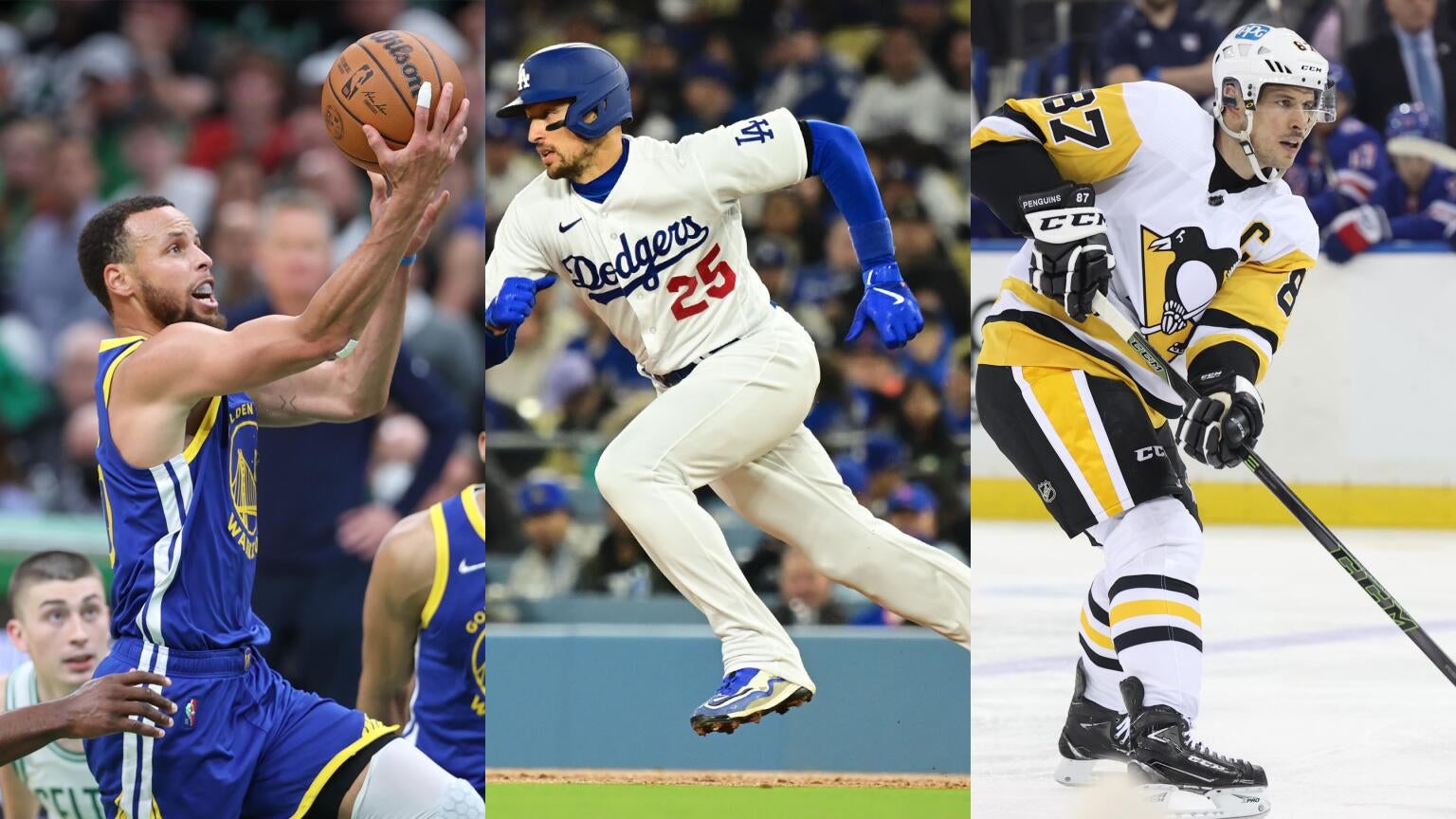Are League-Owned Streaming Platforms the Best Strategy for the NBA, NHL, MLB as RSNs Collapse?
Are League-Owned Streaming Platforms the Best Strategy for the NBA, NHL, MLB as RSNs Collapse?
Nationalized streaming services for in-market games would give sports leagues a twofold advantage.

The future of regional sports networks (RSNs) is clear. The business model that for so long allowed RSNs to bring in-market broadcasts of NBA, NHL, and MLB games to cable and satellite subscribers at great profit for both the leagues and distributors has collapsed thanks to cord-cutting. Unfortunately, because of how quickly the RSN model has almost completely unraveled, many teams don’t currently have a better option for distributing the majority of their regular season games. But as streaming services get more and more accustomed to offering live sports, leagues may begin to look at the medium in a new light. Streamers can offer a viable alternative to RSNs for broadcasting in-market games, and it may be time for the NBA, NHL, and MLB to start pulling back their teams’ local rights to try to sell those games directly to consumers.
Key Details:
- Creating national, in-market streaming platforms would allow leagues more direct control over how many games are put into national broadcast deals.
- These platforms would also lead to less fan confusion about where to watch games.
- In the wake of the NFL Sunday Ticket ruling, leagues will likely take care in how they package their broadcast rights going forward.
The NFL has seen great success from making as many of its games available to in-market fans on nationally-available broadcast channels and streamers as possible. There’s no reason that the NBA, NHL, and MLB can’t do something similar, even though each league plays many more games per season than the NFL does.
The evolving discussion of sports leagues and their future broadcasting arrangements took on a new character this week, as the NBA Board of Governors voted to approve its next deal for broadcasts of national games and MLB commissioner Rob Manfred floated the idea of a nationalized platform housing multiple teams’ games that are now found on various RSNs.
Both leagues, along with the NHL, are heavily entrenched with Diamond Sports Group, the broadcaster that owns and operates Bally Sports RSNs. Diamond holds the broadcast rights to 35 NBA, NHL, and MLB teams, and is still working through bankruptcy proceedings that began in March 2023. Throughout the process, each league has expressed varying levels of frustration with Diamond and the RSN model in general.
Despite this frustration, many teams still partner with RSNs because there is currently no alternative that would allow them to generate nearly as much revenue from the local distribution of games. One reason that New York Knicks owner James Dolan was so unhappy with the NBA’s new TV deal is that it pulls more games off of local channels and makes them national broadcasts; a team like the Knicks makes as much as $3 million per game from placing local games on RSNs. It also is likely no coincidence that Dolan owns [MSG Network], the local RSN that airs Knicks games. According to Sports Business Journal, MLB teams see as much as 20% of their total revenue come from local TV deals, which helps explain why they’ve clung to RSNs for so long.
A pivot to league-run streaming platforms that house locally broadcast games for fans in respective markets may be costly, but in the long run, it seems like a much more viable solution than just sitting by and waiting for the eventual collapse of the entire RSN infrastructure. These platforms would offer multiple advantages to leagues; they would be able to ask for more revenue in national TV deals going forward, as they would have the freedom to shift more games to nationally available channels and streaming services.
These services would also help fans avoid becoming confused as to where their favorite team is playing a game on a given night. Unless that team is playing on a national channel, their games would always be found in the same place, which would be a big plus for fans. A survey from 2023 found that 30% of sports watchers said they had a hard time telling which channel was hosting a game from their chosen team on a given night.
Additionally, streaming services offer sports leagues more direct information about fans and their viewing preferences than traditional linear TV. Leagues can customize the experience on their in-market streaming platforms and make it extremely team-specific for fans in different areas, and direct ownership of these platforms would mean that the NBA, NHL, and MLB get to keep more of the ad revenue generated by the games.
Could an existing streaming partner of these leagues step in and provide the improved fan experience that the leagues themselves could offer? Perhaps. Amazon’s Prime Video could become a distributor of Bally Sports content if Diamond emerges from bankruptcy, for example. But if the leagues themselves were to create these platforms, they would be able to more directly communicate with fans about what they want, instead of having to go through a middleman.
Of course, there are obviously drawbacks to leaving the long-standing cable channel RSN model. For many older fans — who make up a much larger portion of baseball’s fanbase than any other sport’s — streaming is still a somewhat foreign concept, so there would be growing pains at first. Stream also is often beset with technological issues that the often more reliable cable-TV model is not.
That being said, streaming is the future of video content distribution, and leagues will have to make that move eventually. If Diamond Sports Group is not able to emerge from bankruptcy proceedings as a viable company, the that might be just the impetus that the MLB, NBA, and NHL need to go all-in on streaming.
What Stands in the Way of In-Market Streamers for the NBA, NHL and MLB?

There are several obstacles standing between the NBA, MLB, and NHL and the creation of in-market streaming services of their own. The largest is the fact that the leagues would need to see local broadcasting rights revert back to the teams themselves, and many teams’ local rights already have owners for multiple seasons to come.
Intransigence from current owners — such as Dolan’s protests against the new NBA deal — could also be a factor. Some of the biggest teams in the NBA, NHL, and MLB own their own RSNs, and make so much revenue from local broadcasts that shifting games to a league-owned streaming platform would mean drastic declines in the money coming in. Such teams would likely resist joining with smaller-market teams on such platforms, seeing no reason to cut off their own revenue streams to help teams with less earning power.
The consequences of the recent NFL Sunday Ticket class-action lawsuit ruling could also force leagues to be careful about combining their broadcast rights. A jury recently ruled that the NFL violated antitrust laws by housing all of its out-of-market games on a single platform and charging a premium price for that platform. But one key difference if the NBA, NHL, and MLB wanted to create in-market streamers is that fans would not be charged to watch every game from every team in each league, but would almost certainly be able to buy single-team packages at a lower price point. The NBA and MLB already allow viewers to buy single-team plans on their respective out-of-market platforms NBA League Pass and [MLB TV].
Still, the shift to streaming has already begun. The Dallas Stars became the first professional team to follow a streaming-first strategy with its local games this year, breaking away from Bally Sports Southwest to join VICTORY+, a streaming service that will allow in-market fans to stream all games for free. If that experiment goes well, it could convince other teams that streaming is the best next destination as RSNs continue to decline.
At the very least, it will take years for the NBA, NHL, and MLB to acquire the rights to enough teams to make in-market streaming platforms of their own a viable concept. But each league should seriously consider trying to do so, as streaming offers the best platform for in-market game distribution as RSNs continue to totter and fall.
Amazon Prime Video
Amazon Prime Video is a subscription video streaming service that includes on-demand access to 10,000+ movies, TV shows, and Prime Originals like “The Lord of the Rings: The Rings of Power,” “Jack Ryan,” “The Marvelous Mrs. Maisel,” “The Boys,” and more. Subscribers can also add third-party services like Max, Showtime, STARZ, and dozens more with Amazon Prime Video Channels. Prime Video also offers exclusive live access to NFL Thursday Night Football.

